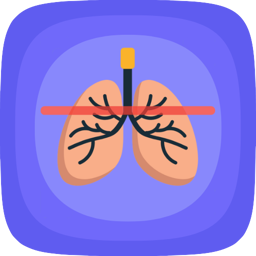Interview Preparation
The interview is the final hurdle to your job offer. Start preparing, you’ll be surprised how much there is to cover. Have a look through some of the top tips below, and formulate answers to our list of common interview questions. In addition to being able to comfortably present your skills and experiences, you will also need to demonstrate you have a broad understanding of radiology itself, so you need to be well-read. We will soon be launching our radiology ‘hot topic’ guides, which discuss some of the important issues facing radiology at the moment, and the fundamental knowledge you will be expected to have.
Answer Structures
Answer structures are good for 2 reasons: they give you a framework to use when preparing your responses before the interview, and they also give you a structure to fall back on when you forget your well-scripted answer under the pressure of the interview. They help to ensure you give rounded answers that remain focused and evidenced. The most common answer structures include the:
- STAR framework: Situation, Task, Action and Result
- Typically used for example-type questions, such as ‘tell me about a time when...’
- SPIES framework: Seek Information, Patient Safety, Initiative, Escalate and Support
- Used for ethical scenarios involving difficult colleagues or patients.
- CAMP framework: Clinical, Academic, Management, Personal
- Used for questions where you talk vaguely about yourself, such as ‘tell me about your experience in...’
Bullet Point Answers
It’s tempting when you start preparing to write out your answers as a script. This makes remembering your answers difficult, and also forces inflexibility. If you get asked the question in a slightly different way, your scripted answer may not be relevant, and this will be blatantly obvious to the interviewers. Do yourself a favour and prepare your answers with brief, focussed bullet points that you’ll remember and be able to talk between. You’ll sound more natural and be able to adapt your response to many different question styles.
Personalise Everything
You’d expect everyone interviewing for radiology to know about the exams that you need to take or the training structure. Regurgitating these facts when asked is boring and won’t impress the interviewer; they will have just sat through 50 candidates saying the same thing. Pique their interest by either personalising your responses or relating them to how radiology is the best speciality ever. Talking about yourself and your own experiences will also make your response more enthusiastic and pleasing to listen to. For example, if asked to tell them about the exams you’ll need to sit, state the facts first, but follow up by saying that on your taster week, you spoke with ST1 trainees who were preparing for the FRCR Part 1 and you know the physics part of the exam can be a particularly difficult subject.
Preparing Juicy Examples
If you look at our list of common interview questions, you’ll see loads of ‘tell me about a time when’ style questions that might get asked. Don’t prepare an individual example for each question; instead, think about really juicy examples of things that have happened at work that you can use across multiple questions. You might have an example that shows that you communicated well, lead a team and dealt with a difficult patient, all in the same scenario. Given how short the interview is, it’s safe to use the same example across several different questions, as you’re unlikely to be asked for multiple examples. Preparing a few complex examples with lots of demonstratable skills will make your answer more interesting and your revision easier.
Flashcards for Active Recall
After you’ve prepared a response to all the different questions that might get asked, it’s time to cram them into your short-term memory. You’ll never remember all your responses by just reading through them, so make yourself some flashcards. It’s much easier to remember your answer under pressure when you’ve already practiced actively recalling it. You can also use flashcard applications such as Anki or Quizlet to take advantage of spaced repetition (i.e. repeating the questions you find difficult more often), which makes your revision more efficient.
Mock Interviews
It’s vital to practice saying your answers out loud and to be put under the pressure of being asked questions you don’t expect. Set up some mock interviews with family, friends and colleagues. Try and emulate the real thing by doing interviews over Microsoft Teams. Anything you can do to help make the real thing feel more familiar will settle your nerves on the day.
Record Yourself
During your mock interviews, or if you’re practicing by yourself, try recording it and watching it back. You might find that you say ‘erm’ more than you expect or you fiddle with your hands. These can be easily fixed once you realise, and you can use future mock interviews to practice your new style.
References: - Suggestions for Structuring Your Answers at Interview. (n.d.). [online] Available at: https://www.nwpgmd.nhs.uk/sites/default/files/Suggestions%20for%20Structuring%20Your%20Answers%20at%20Interview.docxpdf.pdf [Accessed 13 Nov. 2022].
GetIntoRadiology
Copyright © 2022 GetIntoRadiology.co.uk. All rights reserved.
